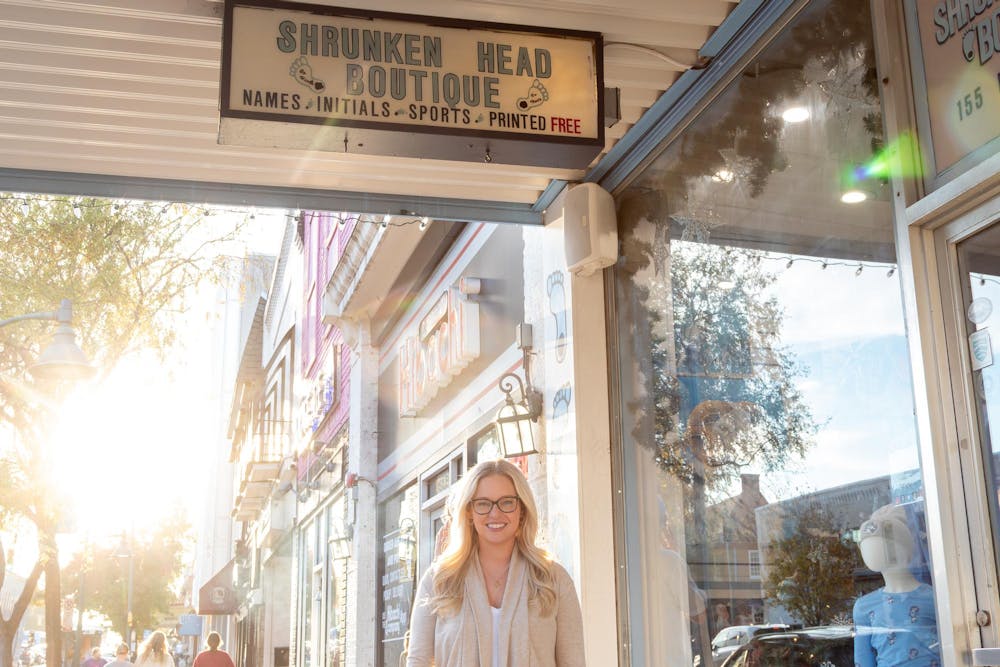Earlier this month, Gov. Roy Cooper joined Vice President Kamala Harris and U.S. Department of Treasury Deputy Secretary Wally Adeyemo to announce $32 million in funding from the American Rescue Plan awarded to 10 women-led and minority-led capital firms in North Carolina.
Through the capital firms, the money will be invested into historically underserved small businesses and entrepreneurs. The firms are part of a cohort with the N.C. Venture Capital Program, a program that supports early-stage small businesses in the state primarily through equity-based financing.
“To hear that the governor is doing what he's doing to try to support small businesses, it is so kind and so important to keep that vibe because I don't think there's anybody in the world that loves their community or customers more than a small family business,” said Melissa Pate, the manager of The Shrunken Head Boutique.
Ted Zoller, a professor at the Kenan-Flagler Business School, said through the funding, the government has backed organizations that have experience in working with underrepresented founders.
“One of the nice features of this investment by the Biden administration is that you will start to see a greater breadth of demographics and different economic categories covered by this capital,” he said. “You’ll start to see thriving, high-growth, successful African American founders, female founders, Hispanic and Latino founders.”
The funding fills a critical gap between the amount of venture capital available and the amount that is typically allocated toward companies that are founded or led by women and people of color, Doug Speight, the CEO of AxNano, a water sustainability research company, said.
Elizabeth Lindquist, the co-owner and president of Chapel Hill's Whitehall Antiques, said being a woman in business has its own challenges, including facing different standards that are not fair or viable. When people are working with women in business, they should remember this because it is easy to have subconscious biases, she said.
“For race and for gender, trying to remember that and think about, ‘Well, did I just default to talking to the male here who’s not the person in charge because they’re the male?’” she said.
She said she manages the business’ online websites, print advertising and spot advertising with the UNC radio to attract customers.



